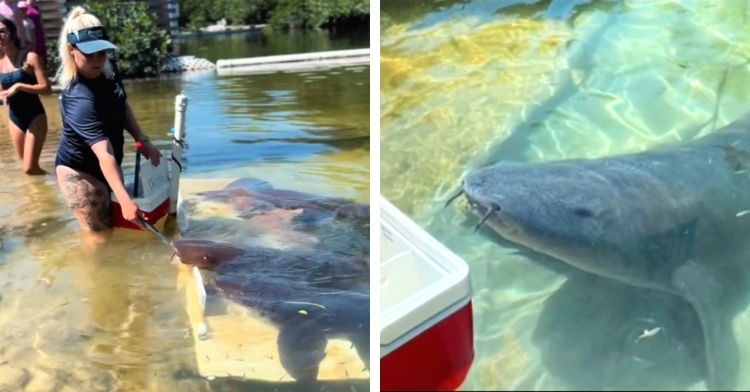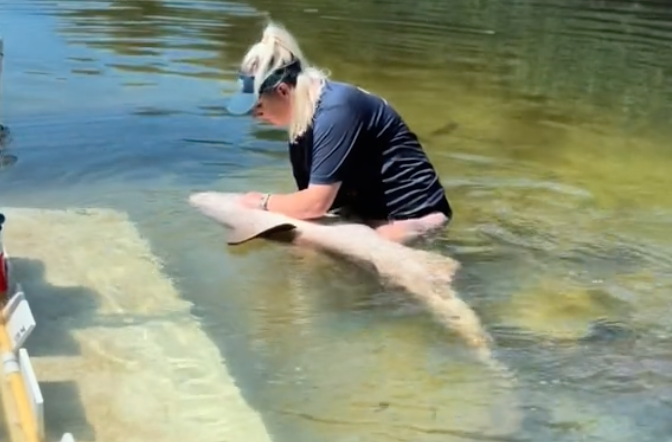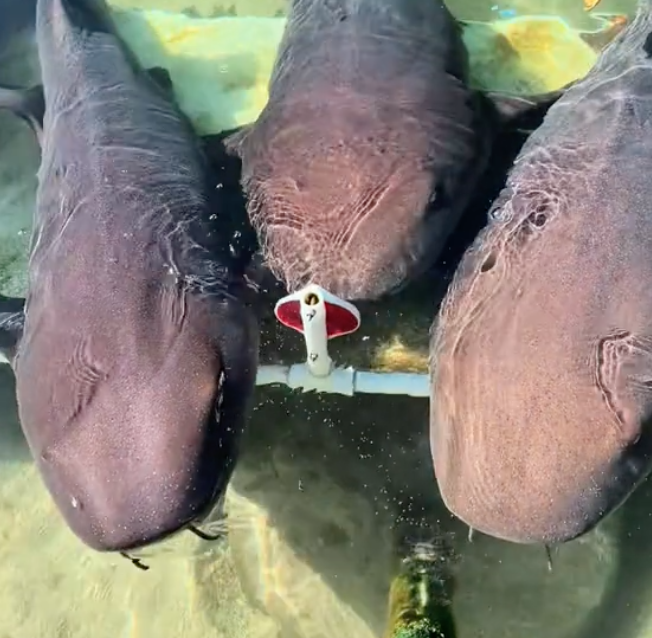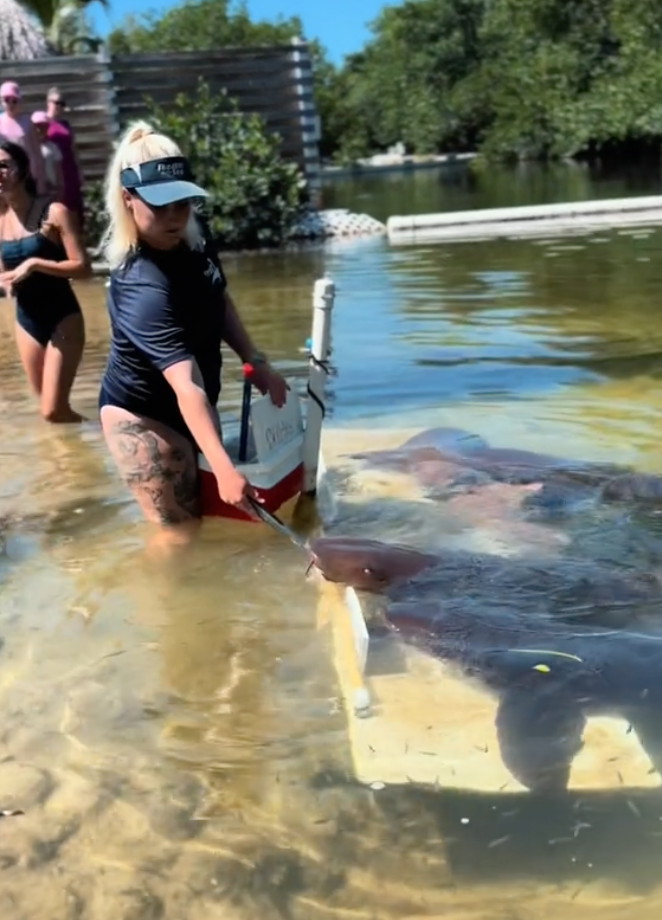
As a society, while we still have a healthy respect for sharks, I believe we’ve moved past the mentality that they’re mindless killing machines. But you might not realize just how intelligent these amazing creatures are!
Don’t take it from me! Let the nurse sharks at Theater of the Sea in the Florida Keys demonstrate just how much they’re capable of:
The behaviors that you see in that video are called husbandry behaviors. Husbandry behaviors allow the animals to voluntarily participate in their own care. They also allow trainers and caregivers to monitor the animal’s health more closely and notice small changes in an animal’s health earlier.

You probably dread a trip to the vet right? Or maybe you have to wrestle with your dog for an hour or more to trim their nails. I’ve even heard of a few cases where vets have to sedate dogs to trim their nails because it causes them so much distress.
This is precisely the type of problem trainers prevent when they work on husbandry behaviors with their animals.

The sharks at Theater of the Sea allow their trainers to perform physical exams, including their undersides! Trainers also teach the sharks to swim to specific stations and wait during feeding times so that they can keep track of exactly how much each animal eats.
This training is also incredibly important for their health and emergency situations. The sharks allow vets to perform ultrasounds, draw blood, and swim into a stretcher for easy transport if needed.

You can see Loretta, the largest nurse shark at Theater of the Sea, participating in a training session below:
The most crucial element in this training is that the sharks participate voluntarily. Allowing them to have control and choose to leave sessions if they’d like is important for building the trust needed in emergency situations.

Theater of the Sea is far from the only facility using husbandry training with their animals! Many different zoos and aquariums also train these behaviors with their animals. Next time you’re at the zoo or aquarium, ask the keepers to tell you about the husbandry behaviors they work on with their animals. I’m sure they’d be overjoyed to share their knowledge!

You can find the source of this story’s featured image here.